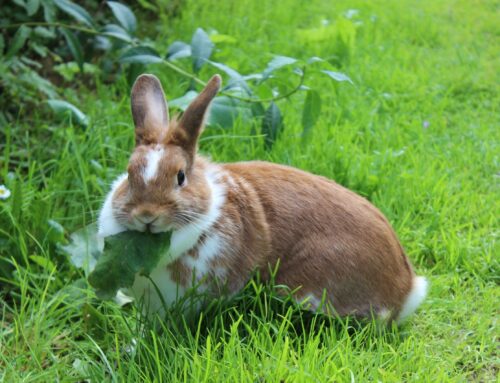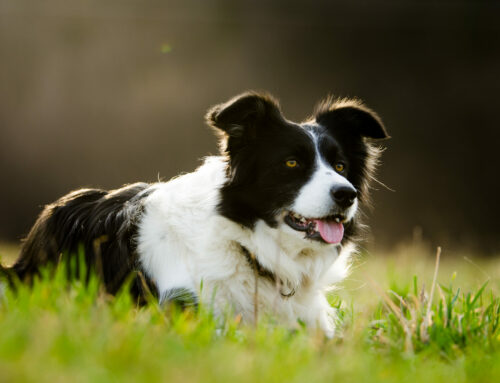Just like humans, our pets will age… some more quickly than others. Larger breeds of dog tend to have shorter lives on average compared to smaller breeds. Different pets will show symptoms of aging more obviously compared to others, due to their personalities and – sadly – the level of pain they are experiencing. Because pets generally live for a shorter period of time compared to humans, their aging period will appear accelerated.
As we get older, we modify our lives to ensure we age in a comfortable manner, we should do the same for our pets. Age is not a disease; many symptoms can be improved, if not resolved with appropriate treatment.
Common symptoms in old pets
As pets become older, signs of chronic diseases may become more obvious and they require symptomatic treatment.
Lameness and pets becoming more stiff is commonly noticed by owners. Older pets often spend more time laying down and are reluctant to get up after laying for long periods of time, they slow down on walks or can be reluctant to jump in and out of the car. You may even notice lameness on one leg specifically. This is not necessarily “just old age” but can be due to arthritis, which pets can suffer just as we do. Lameness and arthritis are common following any previous musculoskeletal injury earlier in life.
Organ damage, including liver and kidney failure, is also more common in older pets. Symptoms that you may notice in your pets include: drinking or eating more, greasy faeces, increased urination frequency or volume.
Weight changes leading to pets being overweight or underweight are also common as pets grow old. This is due to a change in the balance of calories eaten compared to calories used up. Older animals often exercise less, so they may need to consume fewer calories in order to maintain a body weight. However, as pets get older, muscle wastage is also common. Muscle weighs more than fat, so weight loss can be strongly associated with muscle loss.
Dental disease is a common, progressive disease, so older pets are more likely to have problems. Common symptoms witnessed include bad breath, discoloured teeth, hypersalivation, reluctancy to eat and red gums.
Vet visits
As pets get older, they are likely to undergo changes, both physically and behaviourally. We recommend twice yearly health checks for older pets. By visiting us more regularly, we can get to know your pets better and learn about their ‘normal state’ which will help us to pick up on any signs of deterioration.
Bringing your pets for regular health checks when they are not feeling ill is a great way to habituate them to the veterinary practice. Many pets get stressed by travelling or the smell of the vets because they associate these things with feeling poorly which creates a very negative veterinary experience. Ensuring your pet feels as comfortable as possible whilst in the veterinary practice is very important in optimising their prognosis.
When you visit the vets, your vet will perform a thorough clinical exam and assess your pets major body systems, to spot early signs of illness or disease.
Regular weight checks need to be performed. Weight loss can be a clinical sign for many diseases and can be the start of a thorough clinical workup.
Performing a regular dental exam too is important as your pet ages. Dental disease can cause a pet to experience lots of oral pain, which may mean they eventually stop eating: however, most pets will continue to suffer in silence until the very end stages of disease, which can lull you into a false sense of security. Dental care can be optimised at home through a careful diet, brushing their teeth, and the occasional use of dental chews.
Analysing how your pet walks as they enter the consulting room provides the perfect opportunity for your vet to analyse how comfortable your pet feels with general movement. There are many different medications and supplements which aim to optimise your pet’s joint and bone strength, but we would always recommend talking to one of the vets. Sadly, supplements are not a substitute for more potent medications in cases where your pet is sore or in pain, but they may be able to delay the onset of serious signs in some cases.
Changing the diet as your pet gets older
Once your pet is over 7 years old, they should move onto a mature diet and then again, when they are over 11 years old, they should move onto a senior pet diet.
The change should be very gradual when you alter a pet’s diet. You should change diet by mixing different ratios of the two foods, gradually increasing the amount of new food given to your pet every day over a period of 10 days.
The senior diet helps to ensure your pet is getting the correct macro and micronutrients that an older pet needs. This includes a specific amount of calcium and phosphorus to ensure their bones remain sturdy.
Helping the mobility of an older pet
Regular exercise is key, but the exercise must be of low intensity, short duration and high frequency. Exercise also helps to keep the mind young. Making changes in your home to prevent jumping up including ramps to the sofas (if your pet goes on the sofa), ramps up into the car and reducing the amount of sudden exercise your pet does is important. Gentle regular and frequent exercise are good for aging joints; sudden stops and starts or twists and turns, not so much.
Finances
Older pets tend to need more veterinary treatment, which can be expensive. If you have not insured your pet for life, getting insurance once your pet is already aged can be more difficult and expensive. You can use comparison websites to investigate which option is best for you.
It may be best to consider putting aside some savings if you cannot justify the cost of the insurance. This option can work well, but there is more risk involved as you do not know when your pet is going to require veterinary attention and you may not have enough money saved up. With insurance, you would always know what your excess is, the amount of money you need to pay towards each treatment before your insurance company will pay out.
Together, we can help our pets grow old gracefully.



